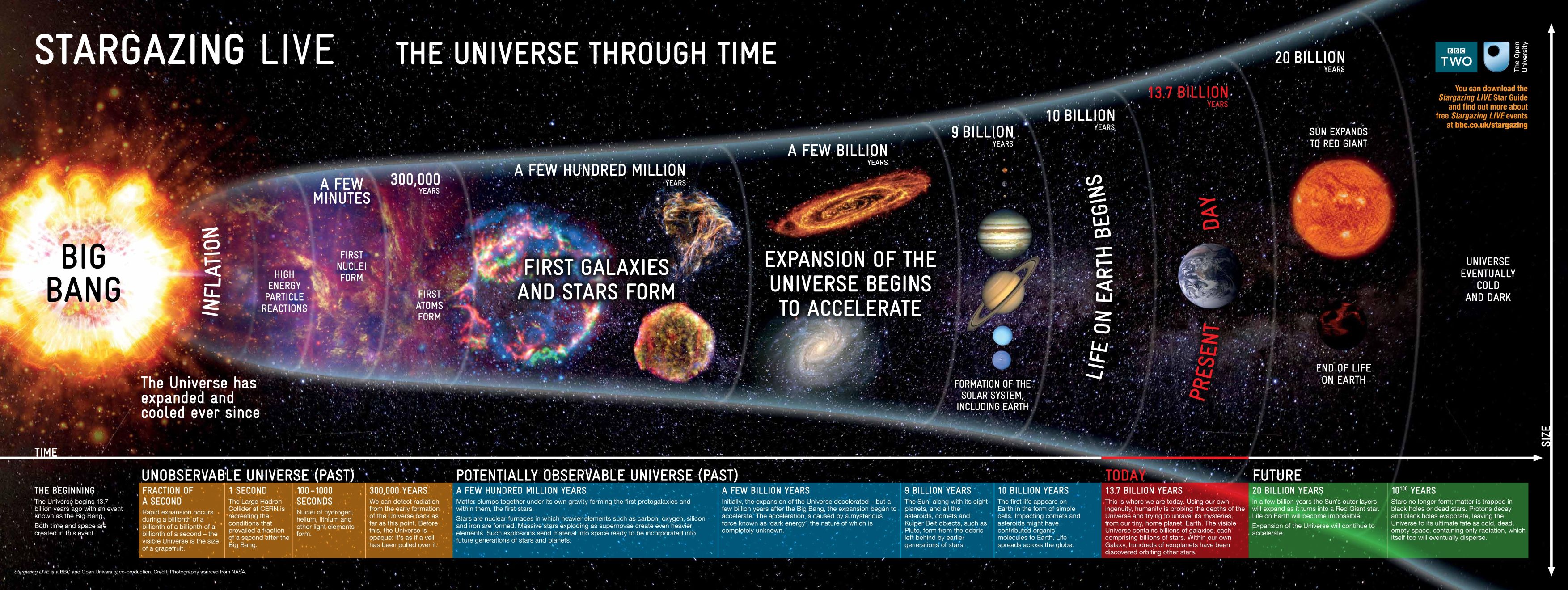In physical cosmology, the age of the universe is the time elapsed since the Big Bang. The current measurement of the age of the universe is . Science AstronomyBufretLignendeOversett denne siden20.

Scientists determine the age of the universe using two different methods: by studying the oldest objects within the universe and measuring how . The Universe is a wee bit older than we thought. Not only that, but turns out the ingredients are a little bit different, too. Astronomers estimate the age of the universe in two ways: 1) by looking for the oldest stars; and 2) by measuring the rate of expansion of the .

In an ideal worl when we want to uncover the answer to a question like “what is the age of the Universe,” we’d have an incredible number of . We hear that rocks are a certain age, and stars are another age. The expansion of the universe gives an age for the universe as a whole: 13. Astronomers and geologists have determined that the universe and Earth . This should tell us the time that the expansion began, which should give us an estimate of the age of the universe. If the expansion of the universe is happening . How old is the Universe and how do we know its age?
The age of the universe is approximately 13. This age is calculated by measuring the distances and radial velocities of other .
